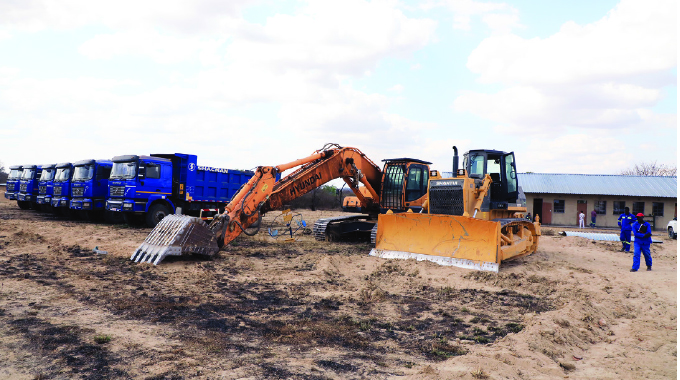Interpol-Afripol joint operation nets over 1 400

Crime Reporter
The International Criminal Police Organisations (Interpol) and the African Union Mechanism for Police Cooperation (AFRIPOL) have arrested 142 people, under operation Flash Illicit Pharmaceuticals and Health Products in Africa.
Since the inception of the operation, 1 413 people have been arrested.
In a statement, national police spokesperson Assistant Commissioner Paul Nyathi said the operation was aimed at arresting and dismantling organised crime groups involved in illicit activities.
“On December 12, 2021, 142 people were arrested under the INTERPOL-AFRIPOL joint operation code named “Flash – IPPA (Illicit Pharmaceuticals and Health Products in Africa)”, being conducted by 54 African member countries, bringing the cumulative arrests to 1 413,” he said.
Interpol enables police in 194-member countries to work together to fight international crime and Zimbabwe has been a member since November 1980.
Last month, the ZRP was among the International Police Organisations conducting an Operation code-named “Pangea XIV” which was targeting fake online pharmacies selling counterfeit and illicit medicines and medical products worldwide.
The operation coordinated by Interpol was involving police, customs and health regulatory authorities from 92 countries.
It resulted in 113 020 web links including websites and online marketplaces being closed down or removed, the highest number since the first Operation Pangea in 2008.
Operation Pangea XIV also showed that criminals were continuing to cash in on the demand for personal protection and hygiene products generated by the Covid-19 pandemic.
Fake and unauthorised Covid-19 testing kits accounted for more than half of all medical devices seized which resulted in 277 arrests worldwide and the seizure of potentially dangerous pharmaceuticals worth more than US$23 million.
Interpol Secretary General Dr Jürgen Stock said, “As the pandemic forced more people to move their lives online, criminals were quick to target these new ‘customers’.
“Whilst some individuals were knowingly buying illicit medicines, many thousands of victims were unwittingly putting their health and lives at risk. The online sale of illicit medicines continues to pose a threat to public safety, which is why operations such as Pangea remain vital in combating this global health scourge.”
Checks of some 710 000 packages led to the discovery of fake and illicit drugs hidden amongst legitimate products including clothes, jewellery, toys, food and baby products.
Supported by the Pharmaceutical Security Institute, the United Nations Office on Drugs and Crime/World Customs Organisation’s Container Control Programme and Europol, overall the operation resulted in the seizure of around nine million medical devices and illicit pharmaceuticals, including: Hypnotic and sedative medication, erectile dysfunction pills, medical devices (Covid Test kits, masks, syringes, catheters, surgical devices) and analgesics/painkillers.
Other medical devices and illicit pharmaceuticals were anabolic steroids, antiseptics and germicides, anti-cancer medication, anti-malarial and vitamins.
According to Interpol, unauthorised and counterfeit medicines can be dangerous for a number of reasons.
They may contain the wrong amount of active ingredient (too little, too much, or none at all), have altered expiration dates or been badly stored.
This means they could be ineffective or contaminated.
Through the operation, Interpol also raised public awareness of the potential dangers of buying medicines online.
Participating member countries conducted social media campaigns, including video guides on how to buy medicines online safely.









Comments